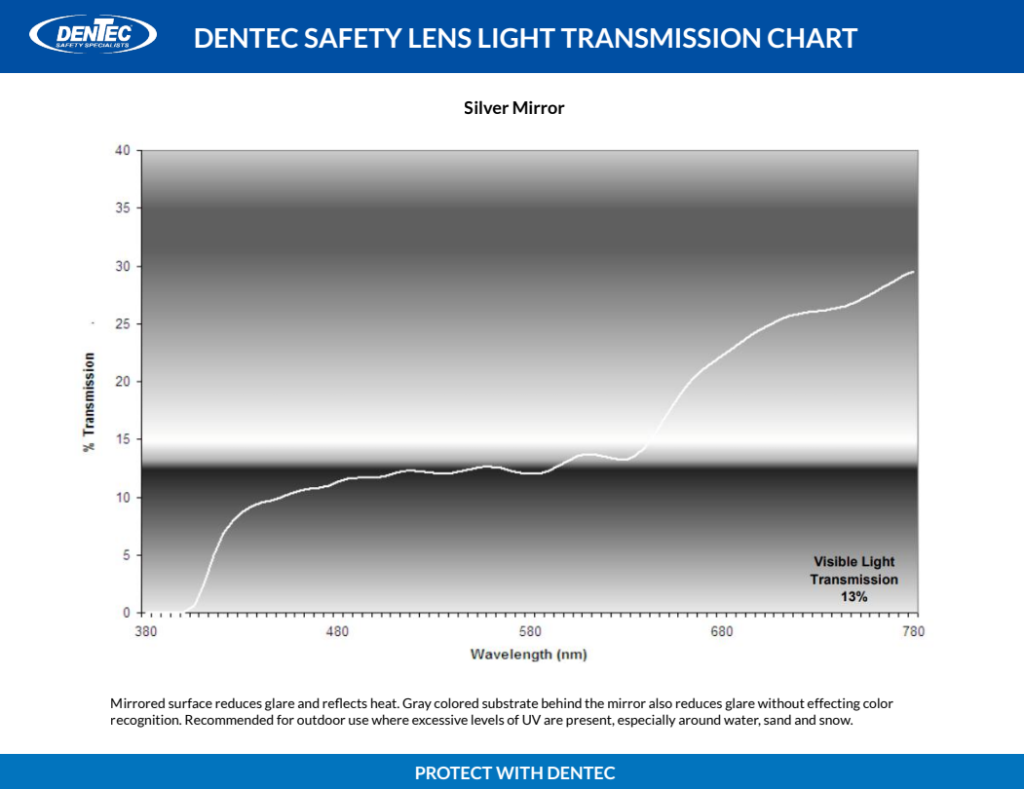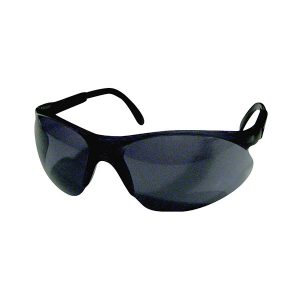For many, sunglasses serve a basic purpose—shielding our eyes from the sun’s bright light and uncomfortable glare. But there’s more to eye protection than meets the eye. Harmful infrared (IR) and ultraviolet (UV) radiation are invisible threats that can cause lasting damage to our eyes, especially in workplaces where exposure to these hazards is high.
In such environments, protective eyewear with specialized tinted lenses becomes crucial, not just for comfort but for safety. These lenses, designed to filter out harmful radiation, range from the standard gray or brown tints to specialized colors like orange and green for tasks in medical and industrial fields. While some might think of tinted lenses as a fashion choice, they play a vital role in protecting vision and enhancing workplace performance.

Different Lens Colour Tints for Different Jobs
Work environments vary, and so do the demands on our eyes. That’s why different lens tints are essential for specific tasks. The right tint can improve visual clarity, reduce eye strain, and protect workers from potential hazards, leading to greater productivity and long-term vision health.
It’s important to note that using the wrong tint can be dangerous. A tint suitable for one task could impair vision in another. That’s why employers must ensure they conduct proper hazard assessments to identify the right protective eyewear for their workers.
The CSA Z94.3 Industrial Eye and Face Protection Standard provides guidelines for employers to remain compliant with eye safety regulations. Leading manufacturers of protective eyewear are an excellent resource for selecting the appropriate lenses that combine style, comfort, and protection.
Types of Radiation & Their Impact on Eye Health
We’re all exposed to emissions from the sun, including visible light, ultraviolet (UV) rays, and infrared (IR) radiation.
- UV Radiation: This part of the electromagnetic spectrum is divided into UVA, UVB, and UVC. While some UV exposure is necessary for the production of vitamin D, overexposure can cause serious damage to the eyes. Prolonged exposure to UV radiation increases the likelihood of cataracts, macular degeneration, skin cancer around the eyes, and pterygium, a condition where tissue grows over the cornea, impairing vision.
- Infrared Radiation (IR): Though invisible, IR radiation can be felt as heat. Prolonged exposure to IR, such as in industrial settings, can burn the retina, cause cataracts, and even lead to blindness.
High-Tech Tints: Protecting and Enhancing Vision
Some jobs, particularly those involving constant heat or UV exposure, require more than basic eye protection. Specialized lens tints are designed to filter out specific wavelengths of light, reducing hazards and enhancing visual performance in different work environments. Manufacturers now use advanced technology to create lenses with dyes that selectively absorb light, making them ideal for various job tasks.
Dentec offers a robust range of CSA certified safety glasses in variety of styles and lens types to ensure high-grade protection for various applications.
Explore our entire eye protection category now.
-
 #12E93135 CEETEC™2 INDOOR/ OUTDOOR LENS CSA CERTIFIED/ MEETS ANSI
#12E93135 CEETEC™2 INDOOR/ OUTDOOR LENS CSA CERTIFIED/ MEETS ANSI -
 #12E96004 MEIV™ SILVER METAL FRAME W/SPATULA TEMPLES SILVER MIRROR GRAY LENS CSA CERTIFIED/ MEETS ANSI (SOLD IN BOX OF 12)
#12E96004 MEIV™ SILVER METAL FRAME W/SPATULA TEMPLES SILVER MIRROR GRAY LENS CSA CERTIFIED/ MEETS ANSI (SOLD IN BOX OF 12) -
 #12E93204 CNC™ BLUE MIRROR LENS W/RATCHET & ADJUSTABLE TEMPLES CSA CERTIFIED/ MEETS ANSI (SOLD IN BOX OF 12)
#12E93204 CNC™ BLUE MIRROR LENS W/RATCHET & ADJUSTABLE TEMPLES CSA CERTIFIED/ MEETS ANSI (SOLD IN BOX OF 12) -
 #12E90806DX SENTEC™DX W/RUBBERIZED TEMPLE TIPS CLEAR ANTI-FOG LENS WITH FOAM CARRIER CSA CERTIFIED/ MEETS ANSI (SOLD IN BOX OF 12)
#12E90806DX SENTEC™DX W/RUBBERIZED TEMPLE TIPS CLEAR ANTI-FOG LENS WITH FOAM CARRIER CSA CERTIFIED/ MEETS ANSI (SOLD IN BOX OF 12) -
 #12E93103 CEETEC™ YELLOW LENS CSA CERTIFIED/ MEETS ANSI (SOLD IN BOX OF 12)
#12E93103 CEETEC™ YELLOW LENS CSA CERTIFIED/ MEETS ANSI (SOLD IN BOX OF 12) -
 #12E98311 HARTLEY™ CARBON FIBER PATTERN FRAME CLEAR LENS CSA CERTIFIED/ MEETS ANSI
#12E98311 HARTLEY™ CARBON FIBER PATTERN FRAME CLEAR LENS CSA CERTIFIED/ MEETS ANSI -
 #12E98004 MANGO™ BLACK FRAME WITH RUBBER TIPS BLUE MIRROR CSA CERTIFIED/ MEETS ANSI (SOLD IN BOX OF 12)
#12E98004 MANGO™ BLACK FRAME WITH RUBBER TIPS BLUE MIRROR CSA CERTIFIED/ MEETS ANSI (SOLD IN BOX OF 12) -
 #12E93706 MIRANDA™ BLACK FRAME W/PADDLE TEMPLES GRAY AF LENS CSA CERTIFIED/ MEETS ANSI (SOLD IN BOX OF 12)
#12E93706 MIRANDA™ BLACK FRAME W/PADDLE TEMPLES GRAY AF LENS CSA CERTIFIED/ MEETS ANSI (SOLD IN BOX OF 12)
Here are some examples of how specific tints serve different work environments:
- Brown or Amber Tints: These are ideal for outdoor work environments because they reduce glare and protect against sunlight. Workers in construction, landscaping, or transportation industries benefit from these lenses, as they help reduce eye strain and fatigue.
- Reflective Tints: For those transitioning between indoor and outdoor environments, such as forklift drivers at receiving docks, reflective lenses suppress indoor glare and adjust to outdoor lighting conditions.
- Orange Tints: These lenses are ideal for medical professionals working in environments with blue light exposure, such as dental offices. Orange tints protect against UV radiation and reduce glare caused by blue light.
Know Your Tints: Maximizing Safety and Comfort
Choosing the right lens tint is as important as choosing the right fit or style of protective eyewear. Using the wrong tint can impair vision, cause eye strain, and reduce workplace productivity. On the other hand, using the appropriate tint can significantly reduce workplace injuries and the financial impact on both employees and employers.
It’s crucial for employers to educate themselves and their workers about the risks of light exposure and how the right protective eyewear can mitigate those risks. Though the eye accounts for less than two percent of the body’s surface area, it’s the only organ that allows visible light to enter the body. Protecting our eyes is vital to preserving our vision and health.
Learn how to choose the right lens for your needs with Dentec Safety’s Lens Light Transmission Chart, designed to guide you in selecting the ideal lens type and colour for optimal protection and visibility. Download here:

General Purpose Lenses
For general-purpose use, dark gray or smoke lenses are the most popular choice. These lenses reduce glare without distorting colors and filter out UV light to a safe level, making them comfortable for all-day wear. In fact, many eye doctors recommend dark gray lenses for everyday use. The military has also relied on this lens tint for over 45 years, thanks to its proven effectiveness.

However, for specific tasks or sports, other lens tints can provide additional benefits. The key is knowing which tint to use for the job at hand, ensuring workers stay safe, comfortable, and productive.
Proper eye protection with the right lens tints is essential for safeguarding vision, enhancing performance, and reducing workplace injuries. By understanding the unique demands of different environments, employers can choose the right lens tints, ensuring their workforce remains protected against harmful radiation while maintaining optimal visual clarity.
Dentec Safety is a leading manufacturer and distributor of safety products in the North America since 2004. Dentec Safety is dedicated to providing the highest quality safety products and solutions delivering enhanced value and comfort. Our expertise from decades of experience in Industrial Safety and our innovative design technologies have solidified us as thought leaders in the field. Protection and comfort are at the core of everything we do at Dentec. As a leading manufacturer of Safety Solutions, it is our mission to help organizations do the right thing, keep their employees safe and exceed Industry Health & Safety Standard.








